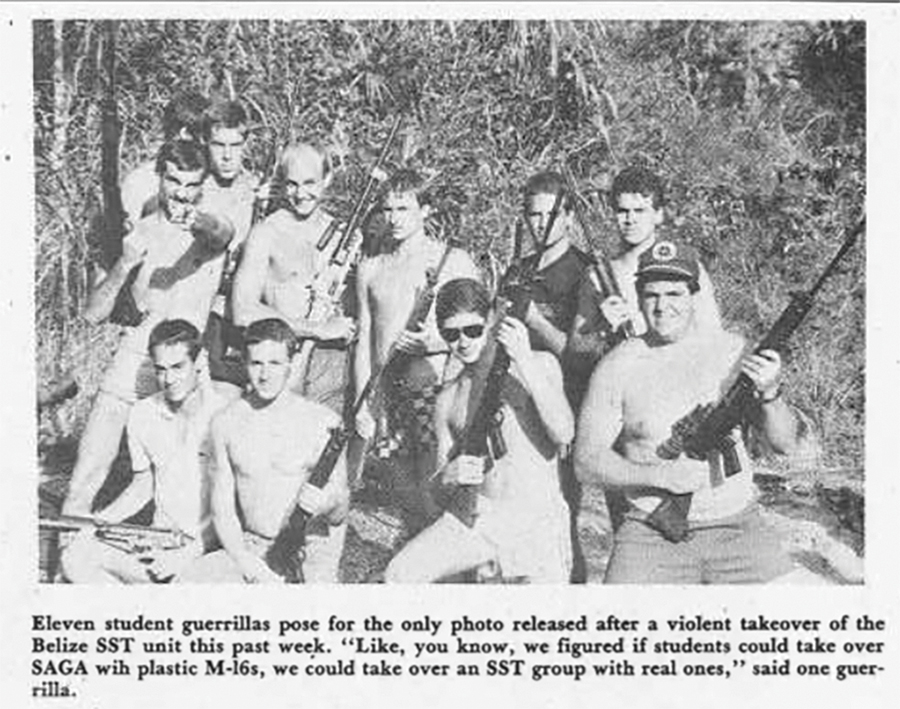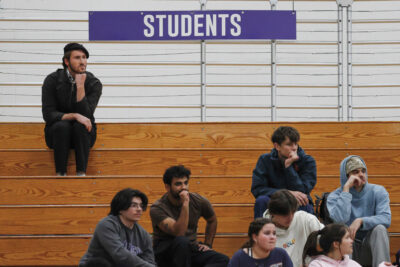Last fall, I had a bit of fun coming up with an alter-ego, who like Indiana Jones, went on quests while at the same time made being a history-type look cool. I tracked down the missing Mennonite archives and tried to figure out why I don’t understand people who live in the science building. It might not sound like much, but it briefly distinguished me from the 563 other Yoders on campus. Better to be the funny-ish Yoder instead of just the other Yoder you have to share a mailbox with.
As I’m sure many people have been wondering, I have been exploring some exciting new things over the past year.Maybe most surprising is that I sold out and started doing what I think every typical liberal arts student does. I got into podcasts.
I don’t know how I ended up here. Somebody recommended “S-Town” to me, and well, you know the rest of the story (if you’re a typical liberal arts student). After I made it through that one, I stumbled through a bunch of NPR-ish type ones that make you feel very well informed in your shoes that favor practicality over style.
Then one day, I stumbled into what I would call the casual social scientist’s dream come true: Malcolm Gladwell’s “Revisionist History.” I’ll admit that a bunch of people recommended this podcast to me before, but it makes me feel better about myself to act like I found it on my own.
In any case, I think Malcolm Gladwell is even cooler than Indiana Jones. I mean, for one, he actually exists. For another, he takes, as he says, “something overlooked or misunderstood” from history and revisits it, telling the part of the story that usually gets left out. It’s fascinating, and Gladwell provides us history junkies with something we don’t usually get in our academic pursuits: a solid answer to a question.
But why should the Canadian with those cool round glasses have all the fun?
I too am going to revisit history. In particular, I am going back to an incident from Goshen’s Study Service Term—not my own, but very specifically the Belize unit from the spring of 1985.
“Where’s Belize?” you might ask. Or, “What’s 1985?”
Belize, as it turns out, is a country in Central America that was formerly a British colony. It was so recently former in 1985, that the SST unit encountered British soldiers on maneuvers while on a fieldtrip in the jungle. This is the event in particular that I want to talk about.
Now there were a few factors at play here as I see it:
There obviously wasn’t a language barrier. (Which could open a whole different line of inquiry about whether that’s a “real SST experience” anyway.)
Goshen is a Mennonite school, which doesn’t necessarily mean everybody is a Mennonite, but probably if they chose this school, they have some inclination to be “compassionate peacemakers.” (If you think I’m wrong, come at me.)
The British soldiers that the SSTers ran into were carrying guns. Like real guns.
The SSTers struck up a conversation with these British soldiers. Apparently the Goshen students won the respect of these Brits so thoroughly that the soldiers willingly let them hold their guns. A photo op ensued.
This photo made it into an April Fools’ Day edition of the Record with a funny story about a coup led against the Belize SST directors. How did campus respond? Well, I don’t know. Does anyone read funnies articles anyway?
I do know, though, that someone who wasn’t happy about the picture was someone in the picture. The photo’s caption reads, “Eleven student guerillas pose,” but there are only ten visible faces. The eleventh person is in the far back with only an ear visible. That person is my dad.
When he first told me this story, I thought he was making it up, so I had to track down the picture myself. I found it, and I still don’t quite believe it. What I feel most when I look at it is empathy for my 1985 dad (I guess you could call him my pre-dad). Here he is with his friends and what the heck are they doing?
And this isn’t a criticism of the character of my dad’s SST buddies. Some of them don’t look too comfortable hoisting machine guns. I’m just left with a lot of questions.
To what extent can the people around us cause us to do stupid things we wouldn’t normally do? Why was my dad the only one uncomfortable enough to avoid having his face in the picture? Is it just because of our family’s genetic lack of photogenicism? Or did he have a hunch that this would be something remembered, something that nosy kids like me would want to dig up and talk about later?
That’s right, Malcolm Gladwell. I’m not going to end with an answer, just a lot more questions.



